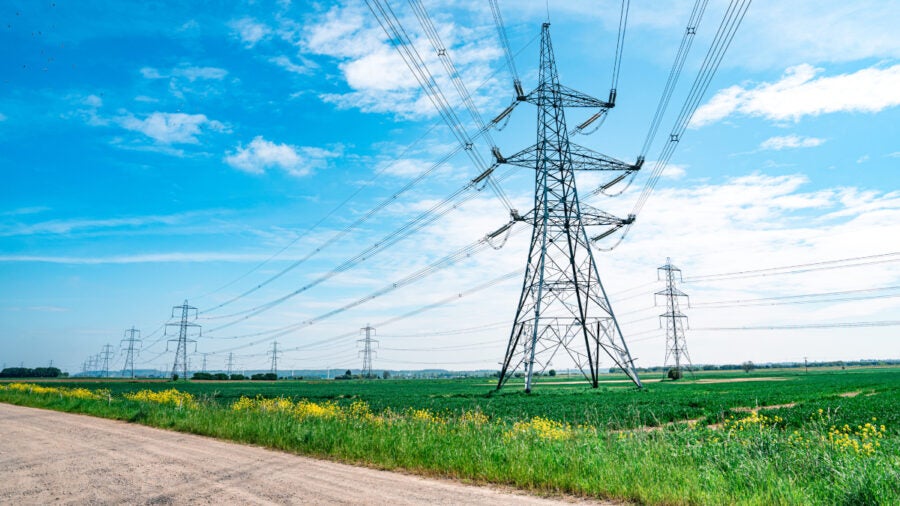
Generative AI requires enormous amounts of energy: first to train the large language models that power the technology and then to keep AI factories running. With the GenAI providers funnelling billions into solving this power demand – and the fear that tech companies will be in competition with citizens for resources – the search for reliable, cheap and clean energy is high on the agenda.
Tech providers and governments think nuclear power might be the answer. The UK has committed £14bn to future nuclear projects and, most recently, has backed the Sizewell C facility in Suffolk. Through Great British Energy, the government is also investing in small modular reactors (SMRs). These are a new type of nuclear power plant with a much smaller footprint, which could feasibly be co-hosted alongside data centres or any other industry that requires a lot of power.
While large-scale reactors like Sizewell C are important projects for the UK’s energy security, they take a long time to plan and develop. Progress can be slow. SMRs, with their smaller footprint, faster deployment time and the fact they can, theoretically, be located anywhere, are much more attractive.
Skills shortages can’t become a nuclear bottleneck
The government has picked Rolls-Royce as the winner in a long-running competition to be the first SMR deployed in the UK. Rolls-Royce’s design is subject to final government approvals and contract signature, which is currently ongoing.
Yet there may be bottlenecks ahead, especially in skills. Some providers intend to eventually run their SMRs near-autonomously or with a small skeleton staff. But as the projects get up and running, thousands of professionals will be essential to oversee the daily operations of these SMRs.
Such jobs are highly technical. In the US, which is also racing to deploy SMRs, the navy has long served as a pipeline for nuclear talent. Given the UK hasn’t built reactors in decades, there is an unsurprising shortage of highly skilled workers available for such an undertaking.
The fast pace of SMR development is central to their appeal. However, it requires an equally speedy programme of education and training, where the workforce is upskilled to match a rapidly growing number of facilities. It is not much use to build these systems without the talent to operate them.
Although SMRs have a quicker development cycle than larger plants, there is still a lengthy lead time before the facilities are up and running. The first SMRs are expected to start powering the national grid in the mid-2030s. This transition period will require thorough action to create the highly trained workforce required of the future. This talent must be primed and ready to operate these new facilities as they are switched on in the coming decades.
That nuclear education must happen across all levels of further education, including undergraduate and postgraduate courses and apprenticeship schemes.
With the UK’s new industrial strategy, the government has committed to supporting workers with training programmes, to help them access the thousands of new job opportunities in the clean energy sector, with £100m to be invested in engineering skills via Skills England and new technical excellence colleges.
As demand for power-hungry AI data centres booms, this isn’t only an opportunity but a necessity. The UK’s ambitions to lead in AI are tied up in its ability to develop a skilled nuclear workforce. It’s all there for the taking.
But it will take time for the UK to relearn these skills. The west’s first commercial nuclear power plant, Calder Hall, which was commissioned in 1956, was British. The UK is uniquely poised to regain the lead it once held, but it must keep focus to turn these ambitions into action.

Generative AI requires enormous amounts of energy: first to train the large language models that power the technology and then to keep AI factories running. With the GenAI providers funnelling billions into solving this power demand – and the fear that tech companies will be in competition with citizens for resources – the search for reliable, cheap and clean energy is high on the agenda.
Tech providers and governments think nuclear power might be the answer. The UK has committed £14bn to future nuclear projects and, most recently, has backed the Sizewell C facility in Suffolk. Through Great British Energy, the government is also investing in small modular reactors (SMRs). These are a new type of nuclear power plant with a much smaller footprint, which could feasibly be co-hosted alongside data centres or any other industry that requires a lot of power.
While large-scale reactors like Sizewell C are important projects for the UK’s energy security, they take a long time to plan and develop. Progress can be slow. SMRs, with their smaller footprint, faster deployment time and the fact they can, theoretically, be located anywhere, are much more attractive.





